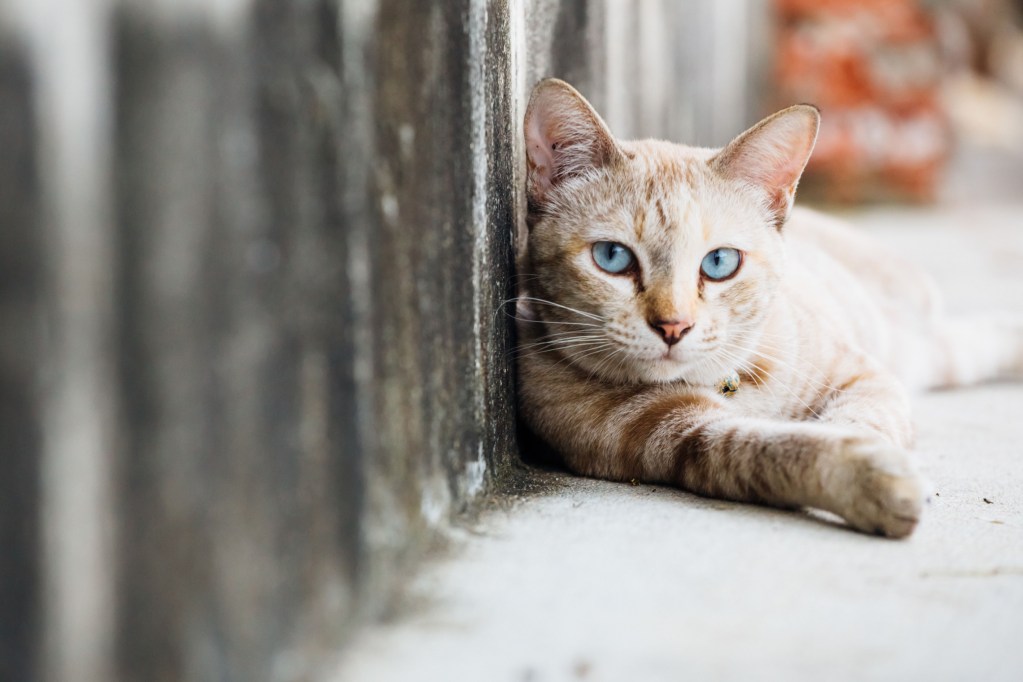
It’s tempting to spend some time outside with your cat whenever the weather is nice, and taking your cat outside can give him a nice break from indoor-only life. If you love to spend time on your balcony, it’s natural to consider letting your cat join you, but balconies can be dangerous for cats. In addition to the potential for a fall, balconies have several other risks that you might not be aware of. Understanding how to cat-proof a balcony can help you to make the space safer, so you and your cat can spend a little time outside together.
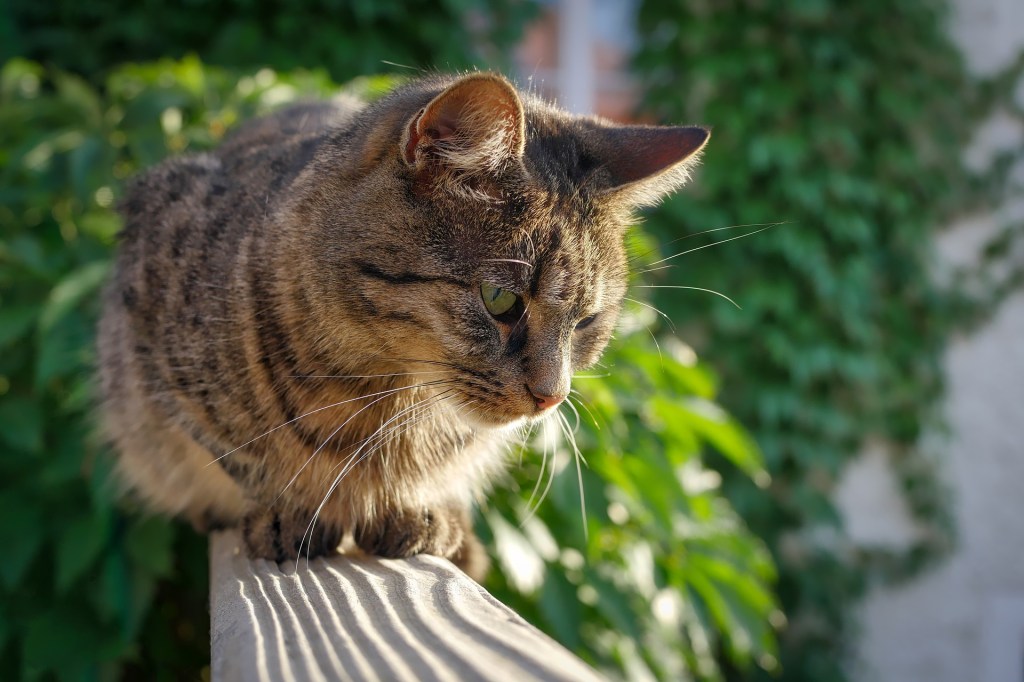
Will a cat jump off a balcony?
Balconies can be very dangerous for cats because of the possibility of “high-rise syndrome.” Always Compassionate Veterinary Care explains that high-rise syndrome refers to the occurrence of cats falling out of high-rise buildings and needing veterinary treatment. The term originates when the Animal Medical Center in New York City treated more than 100 cats who fell out of high-rise windows. That occurred during just five months in the 1980s and highlights the fact that cats can and do fall out of high structures.
Unfortunately, the same risk affects cats who are on balconies. Cats don’t fear heights, and they do fall off of balconies. Cats might fall when they’re focused on prey, startled, or fall asleep on a railing and roll off. Slippery balcony surfaces are difficult for cats to grip, so cats can fall easily.
While cats’ reflexes help them to turn themselves right-side-up as they fall, cats aren’t always positioned to land well, and if they fall from height, they can injure themselves. Cats can sustain serious injuries in falls from balconies, and some cats won’t survive.
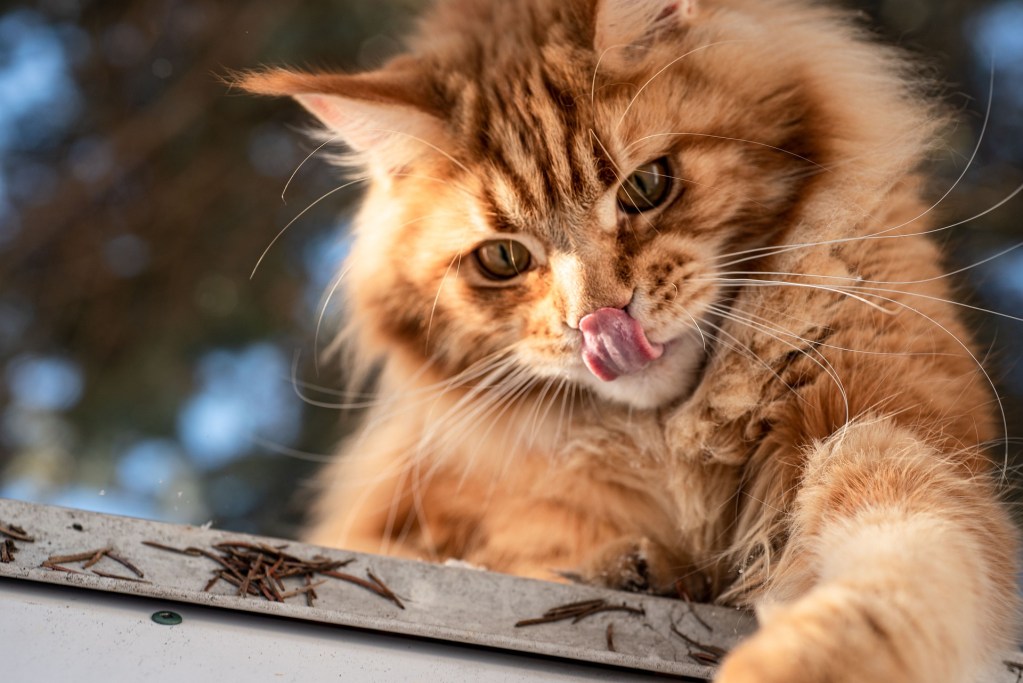
How do I keep my cat from falling off the balcony?
Pet MD recommends that you consider screening in your balcony to help prevent your cat from falling or escaping. A protective screening will need to run from the floor to the ceiling of your balcony, and it will need to be strong enough so that your cat can climb and claw at it without it tearing.
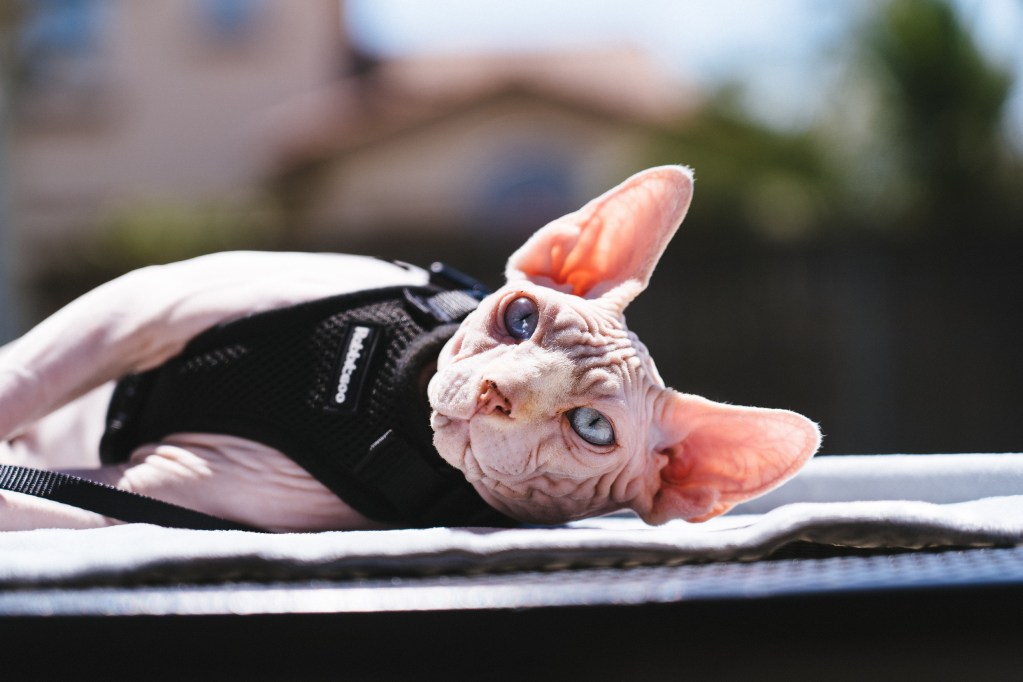
Will my cat be safe on a balcony?
Even if your cat doesn’t fall off of a balcony, the space holds other potential dangers that you need to be aware of. Pet MD highlights that if your cat falls or escapes through the balcony rails, you might have trouble catching him, and he could run away and get lost.
There are other dangers to look for, too. Your cat could be stung by a bee or wasp while outside. If you’re grilling on the balcony, you’ll need to be extra careful to keep your cat a safe distance from the grill. And if you grow plants on the balcony, make sure that none of those plants are toxic to cats.
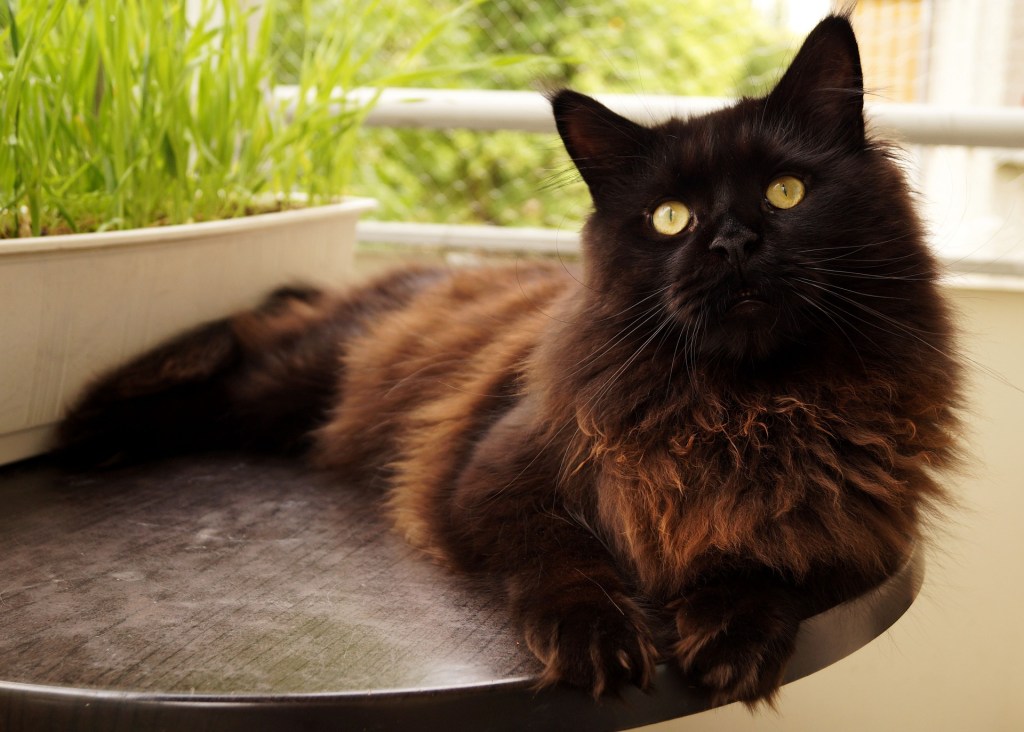
Why do cats love heights so much?
According to cat behavior experts, cats are inclined to spend their time lounging on balconies because they enjoy having a good vantage point. Cats are instinctively hard-wired to protect themselves from predators, and having the high ground ensures they’re able to sleep peacefully without worrying about being attacked by wildlife.
Additionally, having the height advantage allows them to spot any potential predators before they’re in danger. While this is an intelligent survival mechanism for feral cats, it means our frisky feline friends want to spend time where they probably shouldn’t, like at the top of your Christmas tree.
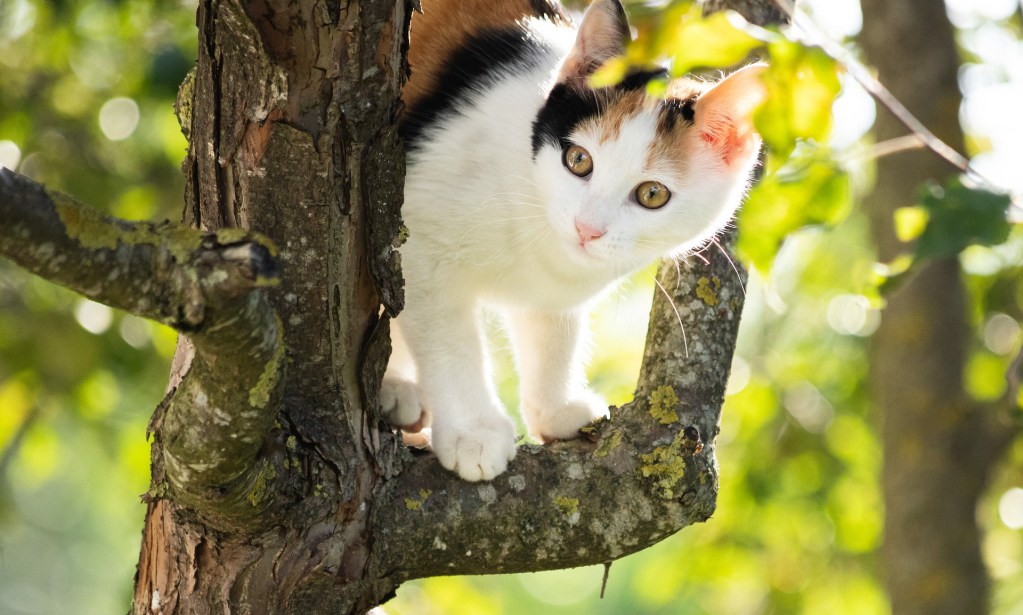
Can I trust my cat not to jump off the balcony?
While you can’t trust your cat not to jump off the balcony, your cat can go out on a balcony as long as you’re prepared to safely supervise her. Pet MD recommends that you closely examine your balcony set up before bringing your cat out. Implementing the steps above can help to make your balcony safer, but even with additions like a screened-in enclosure, there’s no guarantee that your cat will be entirely safe.
That’s why supervising your cat is so important. You may want to have your cat on a harness and leash when you bring her out, which can give you a little extra control and can help to prevent your cat from escaping if she’s startled or feels tempted to chase any animals he might see.
Balconies aren’t the safest areas for pets, but if you want your cat to be able to join some outdoor time, consider investing in a catio. A catio is designed to keep cats safely contained and to protect them from predators, comes in many different sizes. You can buy a catio that mounts right onto your window, letting your cat freely go outside and come back into your home, or you can buy or build a catio that stands independently in your backyard. Whether you choose to supervise your cat on the balcony or invest in a catio, giving your cat some safe outdoor time can help to prevent boredom and give your kitty a literal breath of fresh air.
Editors' Recommendations
- Wondering why cats chirp? Fascinating reasons why your cat chirps at birds (and you)
- How to tell if your cat is a Maine Coon mix (and why you should care)
- When do kittens start eating food? Know the facts for your fur baby’s health
- When do kittens’ eyes change colors? The answer is so cool – here’s what to know
- Your cat trilling is actually a good thing – here’s why


